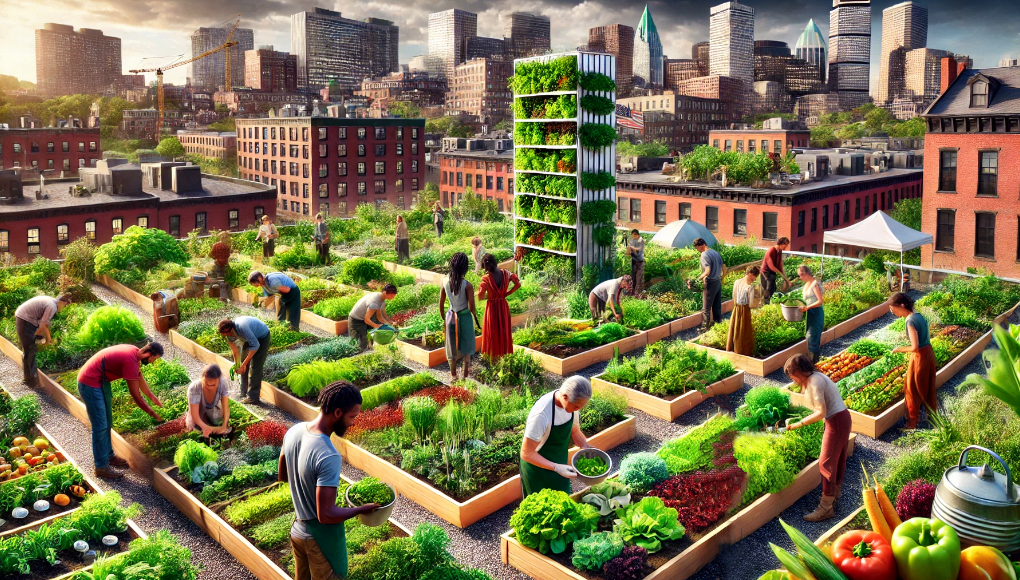Organic Farming and Food Security: A Vision for Boston’s District 7
Organic farming is not a new trend; it has been practiced for centuries. However, with growing concerns over food insecurity, environmental sustainability, and economic development, organic farming is making a strong resurgence. As Boston moves through 2025, it is crucial to support initiatives that provide access to fresh, organic produce, particularly in historically underserved communities like District 7.
The Importance of Organic Farming in Boston’s District 7
District 7 is home to diverse and vibrant communities that deserve access to healthy and affordable food. Organic farming is an essential tool in addressing food deserts, improving nutrition, and promoting community-driven economic growth. By investing in urban farming initiatives, we can:
- Improve public health by increasing access to fresh, pesticide-free produce.
- Foster economic empowerment by creating local job opportunities in urban agriculture.
- Reduce environmental impact by encouraging sustainable farming practices.
- Strengthen community resilience through local food production and self-sufficiency.
Leveraging City Resources: Farmers Markets & Urban Agriculture
Boston already has a robust farmers market network that helps connect local farmers with residents seeking fresh produce. The Boston Farmers Market Initiative encourages participation from local farmers and vendors, enabling residents to access high-quality organic food. As part of a vision for District 7, we should:
- Increase vendor participation from urban farms within District 7.
- Encourage the use of SNAP & HIP benefits at all farmers markets to make organic food more accessible.
- Expand community awareness about local farmers markets and urban agriculture initiatives.
- Support local entrepreneurs in developing small-scale organic farming businesses.
Utilizing Vacant Lots for Urban Farming
Vacant lots in District 7 can be transformed into thriving urban farms. Instead of being neglected or contributing to safety concerns, these spaces can:
- Generate fresh, local produce for the community.
- Serve as educational hubs for sustainable farming and nutrition programs.
- Provide income-generating opportunities for residents.
- Improve neighborhood aesthetics and reduce crime.
By repurposing vacant land, the city can create a network of community farms that provide year-round fresh produce. Additionally, innovative solutions like rooftop farms and vertical gardens can maximize food production in urban settings.
Aligning with Project 2025 and Food Policy Advancements
With new federal policies shaping the future of agriculture and urban food access, Boston must be proactive in ensuring that these initiatives benefit District 7. Project 2025 emphasizes economic development and sustainability, aligning well with the goals of expanding urban farming in Boston. Key policy actions should include:
- Advocating for federal and state grants to support urban agriculture.
- Enhancing food education programs in schools and community centers.
- Strengthening partnerships with local businesses to create a sustainable food supply chain.
- Ensuring fair access to land use and resources for minority and low-income farmers.
A Call to Action: Investing in District 7’s Food Future
As Boston moves forward, District 7 must lead the charge in urban agriculture and food security. By expanding organic farming opportunities and strengthening support for farmers markets, we can ensure that all residents—regardless of income—have access to fresh, healthy food.
As your candidate for Boston City Council, I am committed to fostering policies that support sustainable food initiatives, empower local farmers, and create a healthier future for our community. Together, we can turn District 7 into a model for urban food sustainability and economic empowerment
